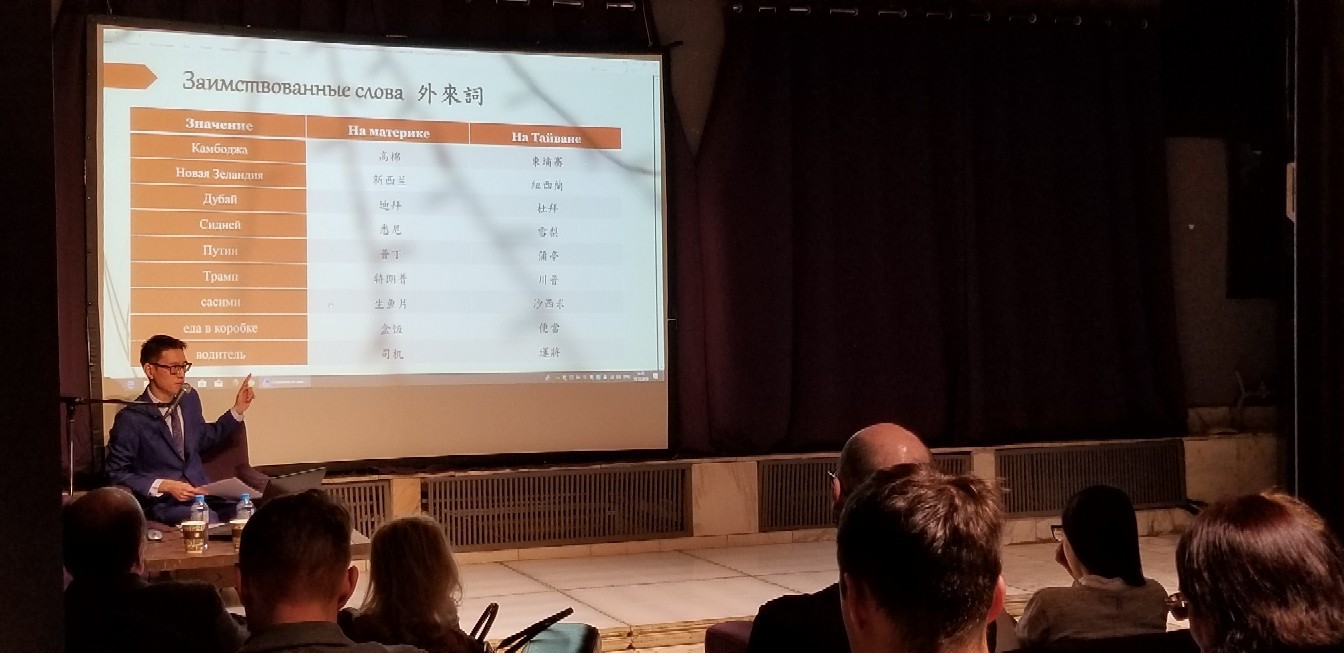Russian Sinology Association Invites 2nd Mandarin Chinese Teacher from Taiwan to Address an Open Dialogue Session

The Russian Sinology Association asked the Education Division of the Taipei-Moscow Economic and Cultural Coordination Commission (ED TMECCC) to invite a Mandarin Chinese teacher from Taiwan to once again address one of the Association’s Open Dialogue sessions. Two Mandarin Chinese teachers from Taiwan have given Association members feedback about teaching Mandarin Chinese in Russia, at a previous Open Dialogue session on October 11, 2018.
This time, on December 19, 2018, Tang Meng-Wei, a language teacher from Taiwan who teaches Mandarin Chinese at Moscow State Pedagogical University, was chosen to represent Taiwan’s teachers and address an Open Dialogue: Training of Interpreters session, focusing on the very practical topic of lexical variations and differences in Mandarin Chinese spoken in Mainland China and in Taiwan.
Approximately 70 people from various Russian key universities and academic institutions that offer Mandarin Chinese teaching and sinology––such as Moscow State University, and the Russian Academy of Science ––attended.
Tang Meng-Wei outlined the key characteristics of the lexicon of Mandarin Chinese in Mainland China and in Taiwan. He talked about: 1. false friends/homographs; 2. homophones; 3. loanwords; and 4. words only found in Mainland China or in Taiwan, which reflect the differences in the politics, economy, culture, and society of each side of the Taiwan Strait.
He also talked about the Taiwan Scholarship and Huayu Enrichment Scholarship programs promoted by ED TMECCC in the Commonwealth of Independent States (CIS) region, and about Taiwan’s TOCFL, the Test of Chinese as Foreign Language, used to determine foreigners’ Mandarin Chinese proficiency.
He received a warm response and was asked a range of questions, such as about the use of traditional and/or simplified characters when teaching, and about the different transliteration systems used to write the pronunciation of characters alphabetically (such as Pinyin, Zhuyin, Wade-Giles, Yale, among others), a situation which often confuses foreign learners.
In the past few years, there has been a sharp increase in the number of Mandarin Chinese learners in Russia, in response to the Russian Federal Government’s decision to include Mandarin Chinese as one of the options in the Foreign Language category of the Unified National Examination, beginning from this year. Taiwan’s participation in the Russian Sinology Association’s Open Dialogue seminars is enhancing the public profile of Taiwan as a Mandarin Chinese teaching and teaching resource center. The Education Division of TMECCC is continuing to work hard promoting Mandarin Chinese there, looking forward to improving Taiwan’s ‘market share’.
Photo:Tang Meng-Wei from Taiwan explaining some lexical variations in Mandarin Chinese in Mainland China and Taiwan.
